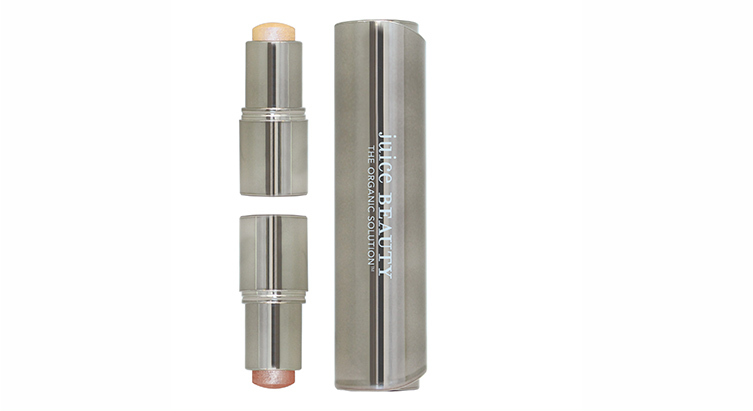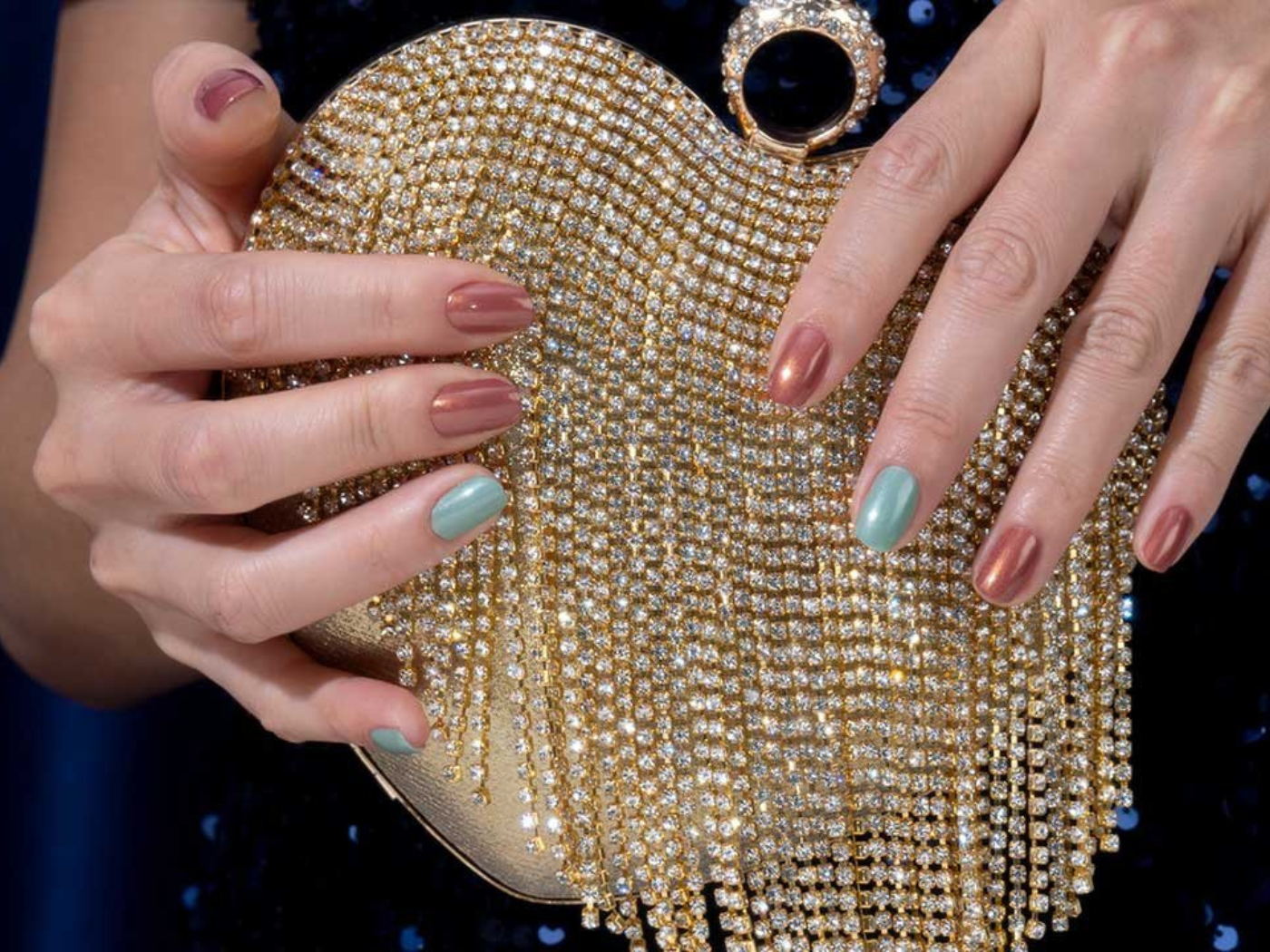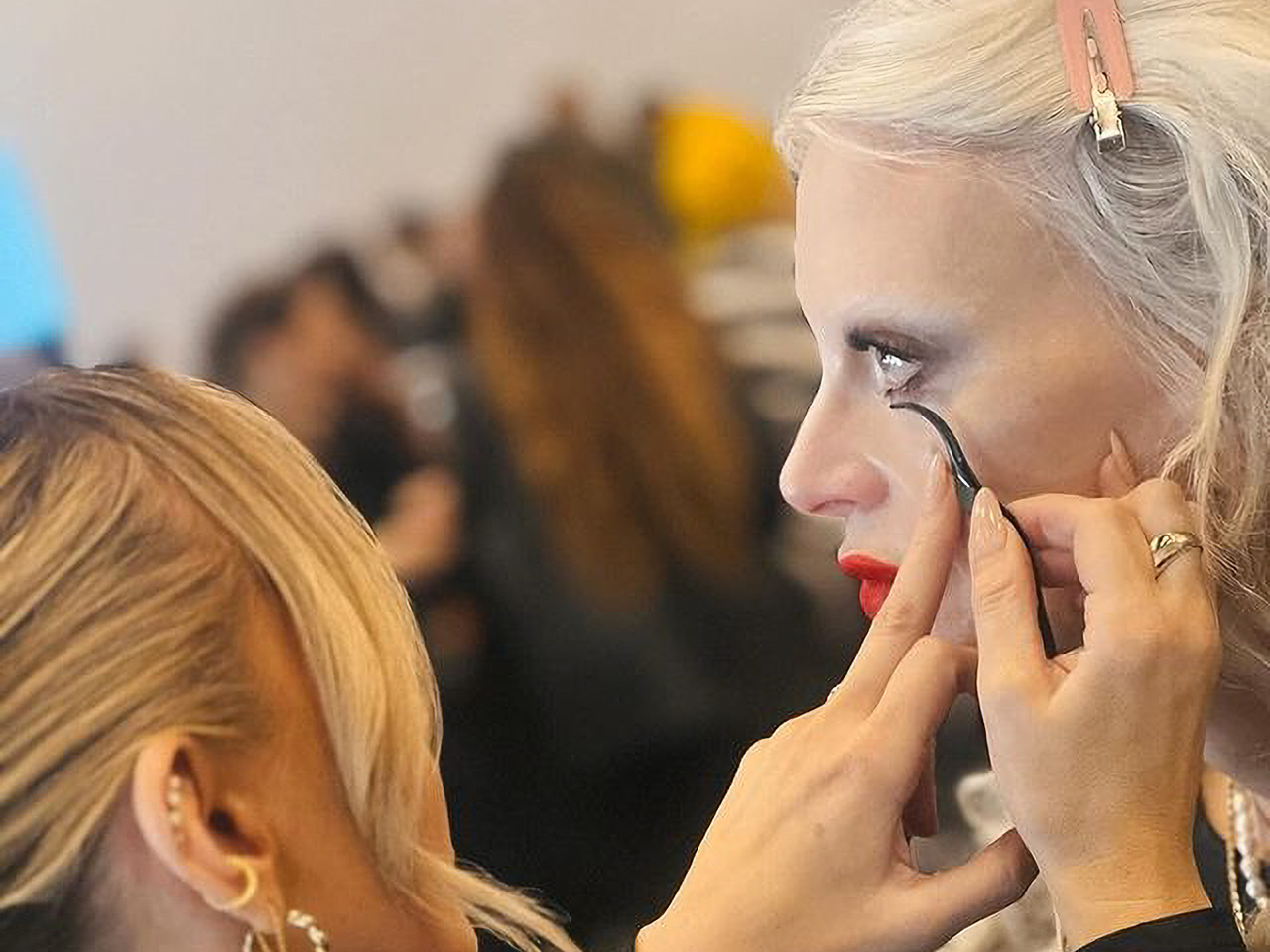Gwyneth Paltrow and Karen Behnke, the CEO and Founder of Juice Beauty, headlined an intimate editors event July 13 at a private residence in downtown Manhattan. The gathering centered on the recent introduction of Phyto Pigments, Juice Beauty’s makeup line, over which Gwyneth serves as Creative Director.
“There’s no compromise at all in terms of how the products work and look,” Gwyneth told about 30 attendees, underscoring one of the main messages of the day: organic beauty does not mean ‘less than.’
“The only way to have an impact with [the line] is if you could stand it shelf to shelf with the most popular conventional product and it would meet it or beat it…otherwise there is no point.”
Juice Beauty, which was launched in 2005 in Northern California, includes nearly 200 skin care and color products that utilize organic botanical juices, as well as a proprietary blend of fruit stem cells, vitamin C and grape, instead of water as a base for products. The 68-piece color range, like all Juice Beauty products, is certified organic, and free from glycols, gluten, talc, silicones, artificial dyes and synthetic fragrances. Formulas are made of organic ingredients such as coconut alkanes, rose petal powder, as well as phyto pigments, or plant pigments, derived from botanicals like purple carrots and roses. In addition, each item is created with an organic base of potential juices, waxes and powder (rather than water), as well as fruit stem cell skin care technology.
“Makeup is generally [made of] artificial and synthetic dyes and if you think about it, it’s kind of easy chemistry to do that because once you get the color, the chemist [knows the exact amount of] dye to put in that product every time,” said Karen, who underscored that the Juice color pigments are amazingly bright despite their natural origins. “What we do is we crush rose petals, we crush argan husk, we crush purple carrot, aubergine, etc. until we get the right color. And to make it even more complex, we are matching the shade of lipstick every time, but the crops don’t come in the exact same shade every time. So we have to use a little more… a little less… It’s very complex what we do, but we’re mission-driven and committed and that’s it.”
It seems the public’s interest in the organic beauty market is catching on.
According to Karen, Juice Beauty, which is privately owned, has grown by $1 million to $2 million per year, averaging more than 35 percent growth in the past few quarters. “It has legs to change everything,” said Karen of Juice Beauty, whose major investors include Founder and CEO, Karen, Gwyneth, and a few other angel investors.
Karen said that the partnership with Gwyneth, who runs health and wellness-focused lifestyle site, Goop, came in a very organic way, naturally. Citing shared values and the goal of educating the public on the hidden dangers found in many conventional beauty products, Juice and Gwyneth joined in a long-term business venture, in which Juice Beauty invested in Goop, and is one of the top five shareholders of the company, while Gwyneth invested in Juice, and assumed the role of Creative Director, Makeup. “We brought our companies closer together and it’s a great partnership,” said Karen. “Gwyneth is great to work with. She is smart as anything, you tell her something once and she doesn’t forget it.”
Gwyneth said she is equally happy about the symbiotic business relationship, and believes the makeup line is unparalleled in both performance as well as ingredients.
“It was tough, a lot of back and forth with the chemists. It took a lot of dedication but I’m so proud of what we were able to achieve in the end,” said the Oscar winner. “Until the time when the government recognizes that it’s not good for us to be rubbing plastic on our face, we have Karen.”
Part of the goal behind the brand, according to both Karen and Gwyneth, is cutting through the confusion of “natural,” a space that surprisingly is still convoluted for consumers. “There are the conventional chemical products we all know, then there’s semi-natural to natural, which has no regulation, then there’s certified organic with only a few players,” she said, adding that to label a brand organic it must be more than 70 percent total organic content.
“There are very few brands that will be crazy enough to formulate with certified organic.”
To wit, most Juice Beauty ingredients are sourced from the Western United states, France and Singapore.
“Our ingredients are highly unusual but they work,” said Karen, underscoring that skin absorbs more than 60 percent of what is put on it.
Regardless of her involvement with a cosmetics business, Gwyneth says her bi-coastal busy life ensures that her beauty bag remains small.
“In my own life I’m really kind of a Tomboy with makeup, but as I’ve gotten a little bit older, I’m like ‘wow I really need a little mascara, or a little cheek color.’ I find that I used to wear nothing all day and now I’m wearing a little color,” says Gwyneth, who named the lip glosses in the collection after friends and family like Apple, Drew, Blythe, Reese and Cameron. “Part of my job is to dress up and do things, and then I require a lot of makeup. Since I was a kid I would sit in the makeup chair and people would do my makeup, so I never really learned how to do it. Recently I’ve had tutorials so now I know how to do it, and I don’t really deviate from the routine.”
According to Karen, best sellers in the makeup line are Flawless Foundation, Illuminating Primer and Phyto-Pigments Mascara.
When the makeup creation process began, Gwyneth brought top performing conventional cosmetics and used them as a benchmark for the Phyto Pigments line, which is sold in Ulta, Holt Renfrew, juicebeauty.com and goop.com. “Gwyneth asked us to match the slip and feel of products that are loaded with plastic,” said Karen with a laugh. “Multiple generations of coconut alkanes mixed with grapeseed later, we got it.”
When asked which was the hardest product to get right, Paltrow said it was Juice Beauty’s Illuminating Primer.
“I love primer,” said Paltrow, who gave Karen and the Juice team a high-end conventional primer as a benchmark. “I didn’t know it was full of silicones and parabens and all these terrible things. [In the end] we managed to make a primer that really gives this incredible base and glow, and you would never know it was an organic product.” Karen said the mascara, which is the only product in the line to not be 70 percent organic, was also extremely challenging.
The brand will launch the Flash Luminizer in September, and has just completed three shows on QVC, where it introduced its Stem Cellular Anti-Wrinkle Booster Serum and Moisturizer. “We were delighted to unveil some incredible before/after images accompanied by new clinical test results that demonstrated how formulas made with certified organic ingredients can be as effective as conventional formulas – if not more so,” Karen said.
Looking towards the future, expansion will come with targeted, measured expansion into new markets such as Asia and Northern Europe, namely Scandinavia.
“We’ve been in boutiques internationally, but we are now developing an international team to talk to distributors,” said Karen.
When asked if any stand-alone stores could be in Juice’s future, Karen said, “we have some ideas.”
“From Day One our goal is to meet and exceed the efficacy in skin care, and we hit that in year five, and that’s when we really started to do quite well: when our clinical results were the same or better than conventional chemical brands,” Karen said. “I started in the health and wellness industry in the early 1980s…and I had never read a beauty product label. When I read the ingredients I was absolutely shocked. That was my inspiration.”




